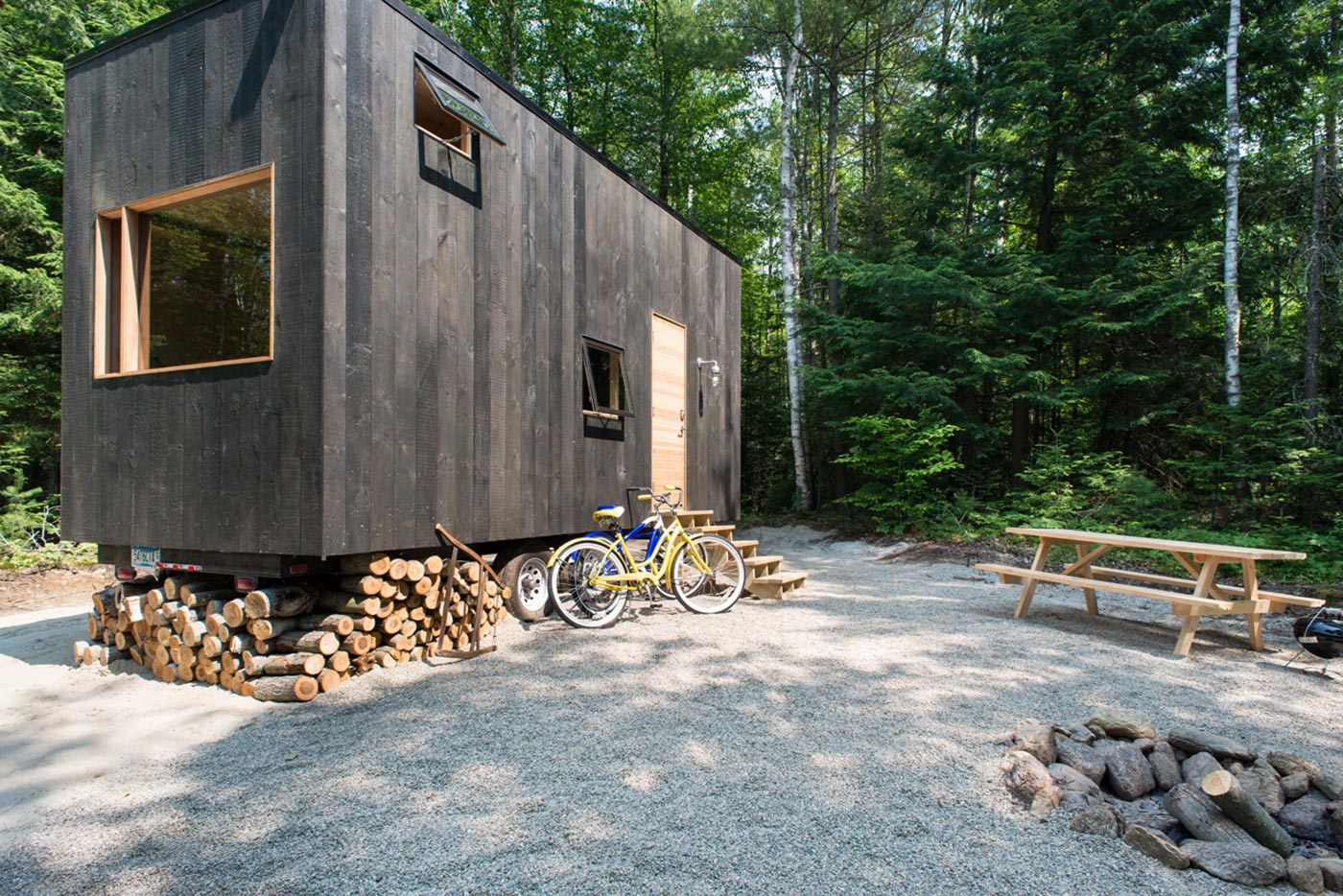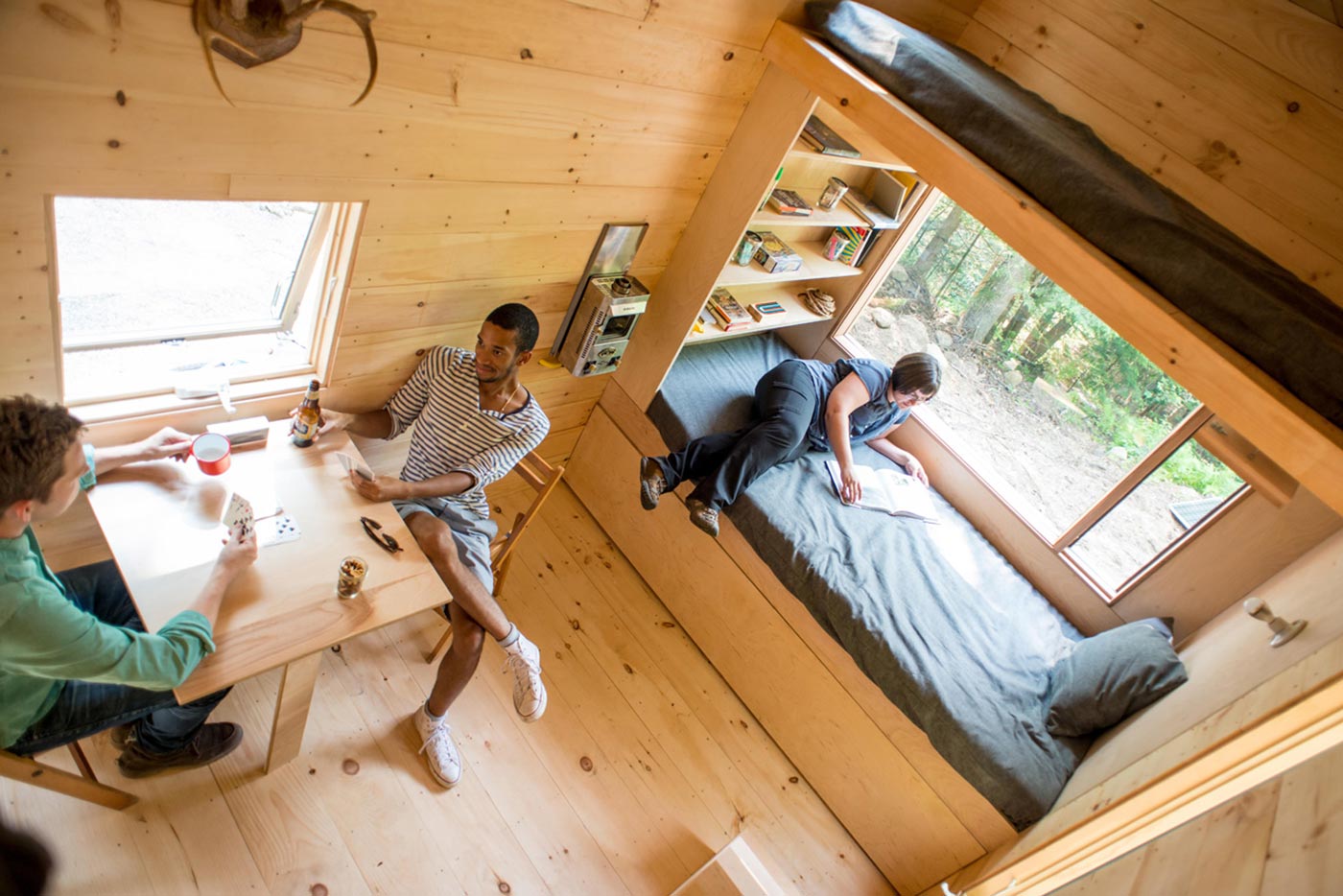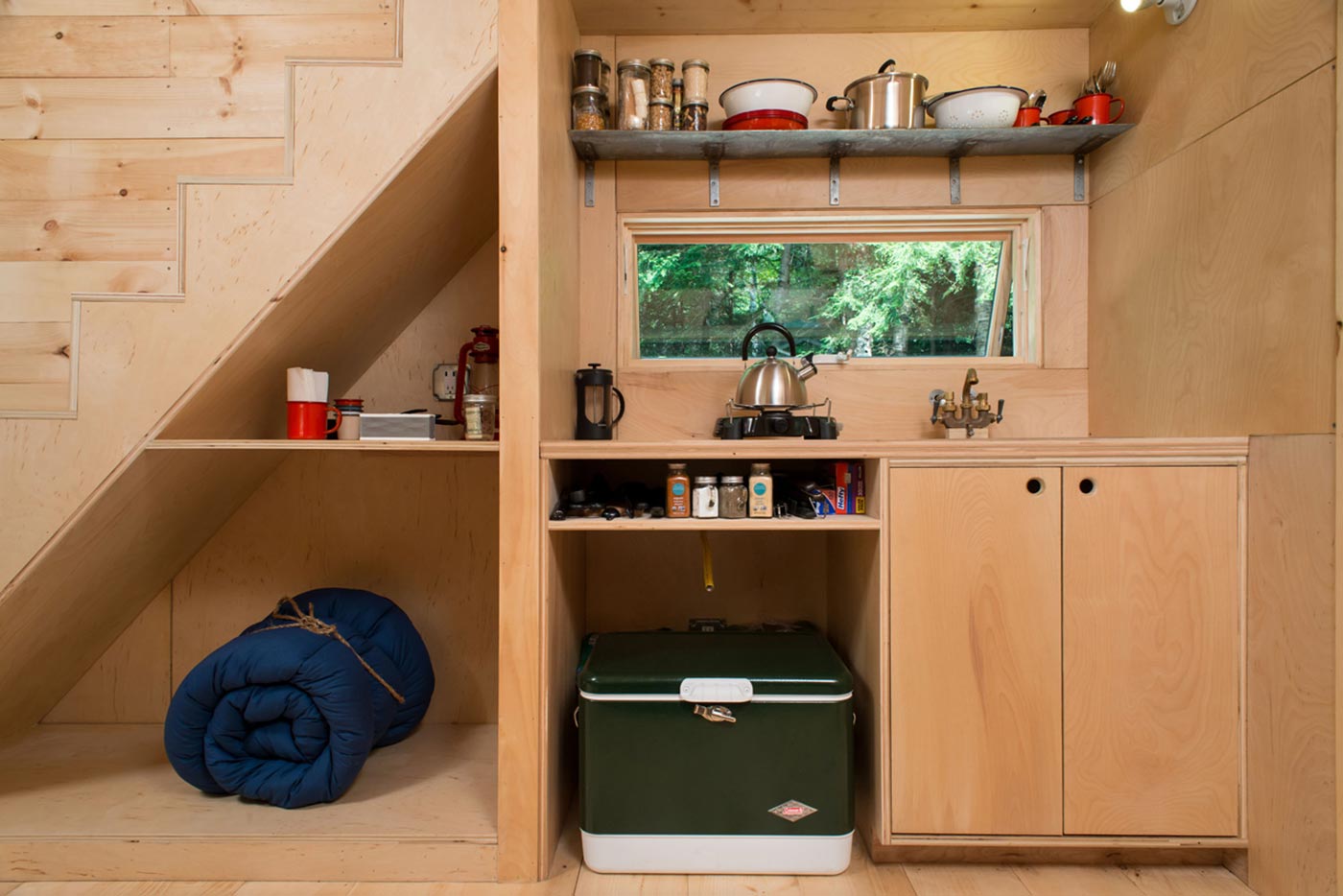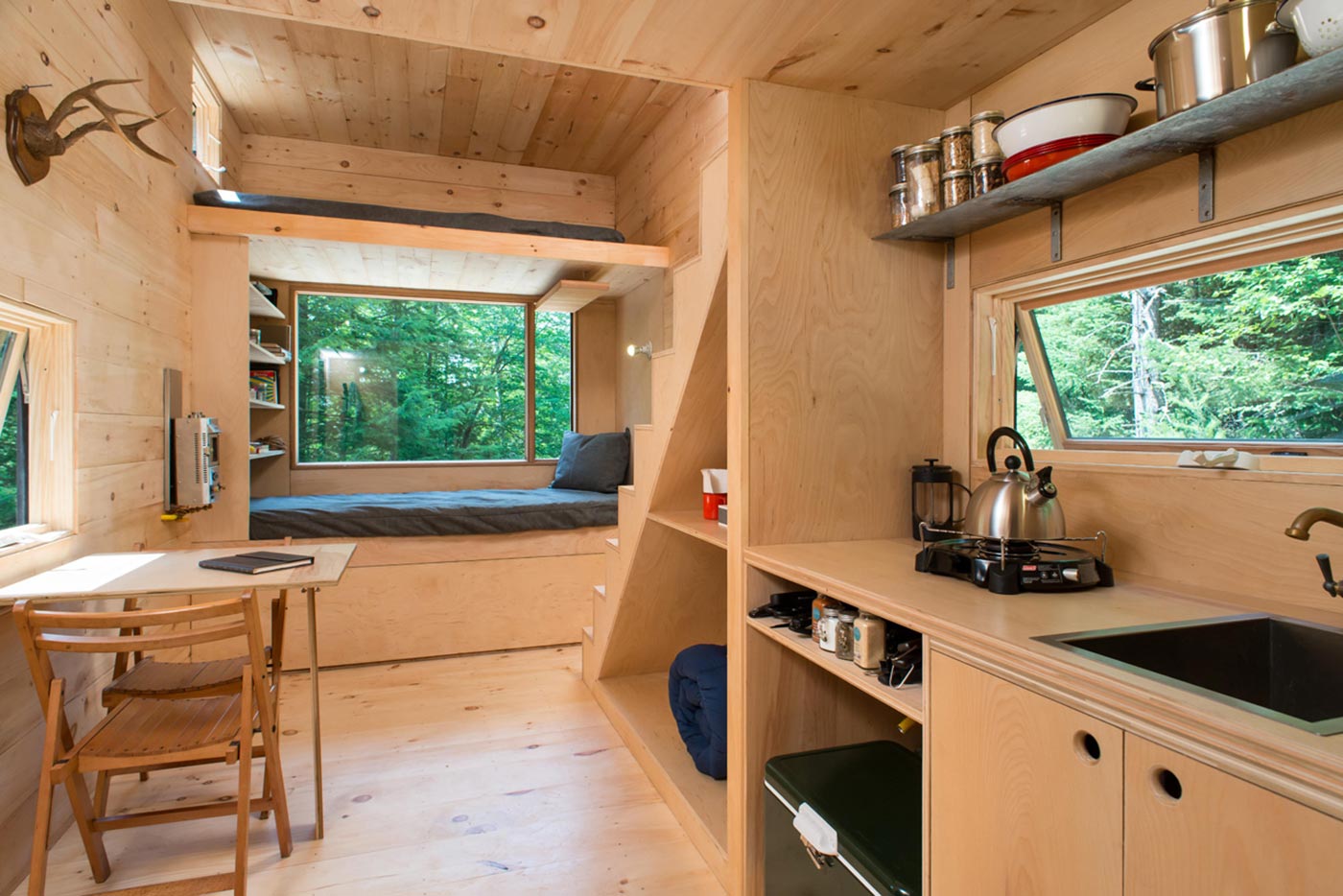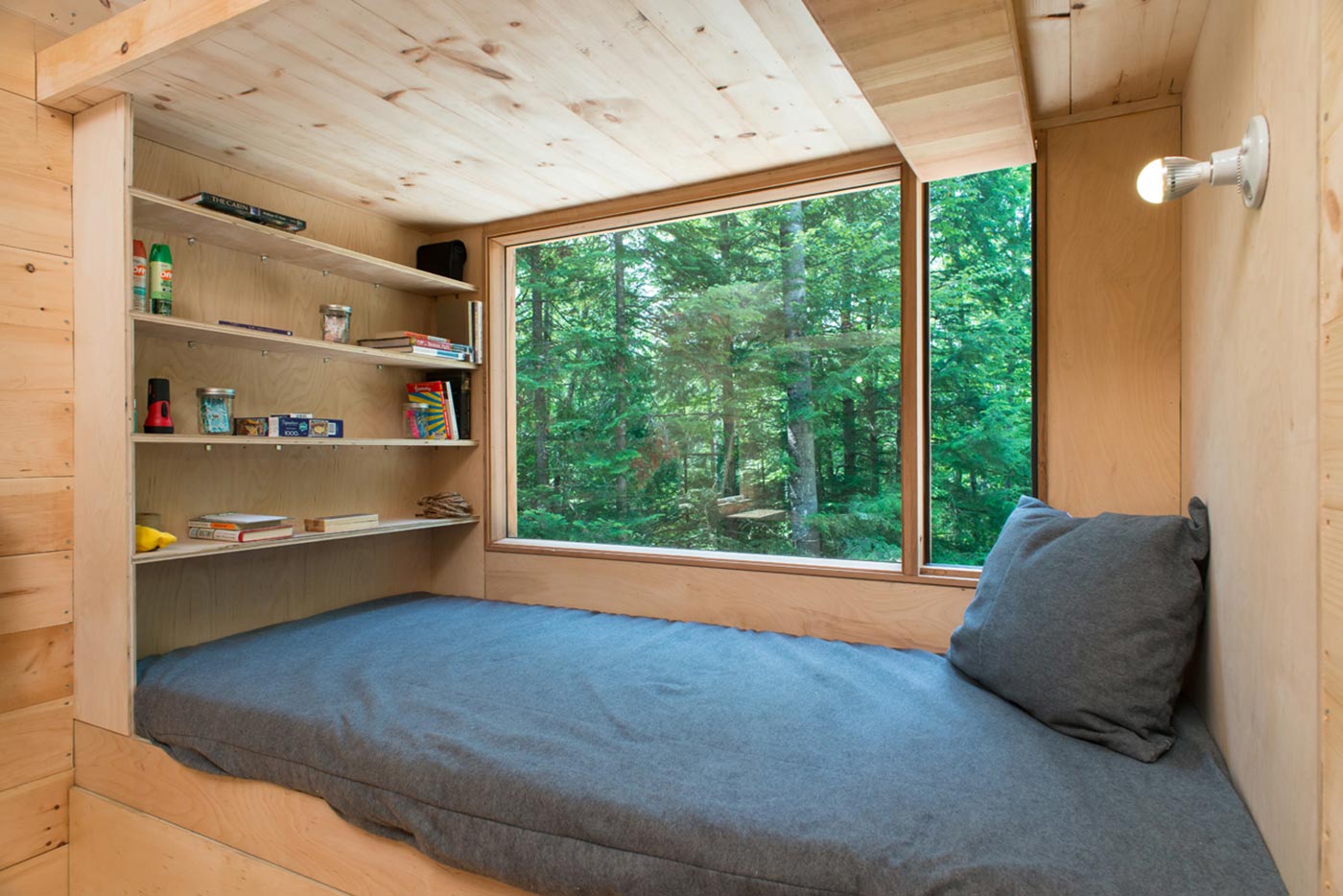Tiny homes have gained a lot of press for their environmental — and, well, mental –impact. Getaway, a project that emerged from Harvard Business students Pete Davis and Jon Staff’s Millenial Housing Lab, is an attempt to make living minimally an accessible reality: “There’s a huge gap between people who post stories to Facebook about living in tiny houses and people who actually live in one.” Not only can the switch from traditional housing to itty-bitty bungalows encourage more efficient resource use, but it also offers an escape from the overwhelming complexities of modern urban life. Ovida, Getaway’s small, isolated cabin just 2 hours North of Boston is a return to simpler ways. The rustic retreat’s small footprint means that there’s detail in every inch of its raw wood and metal construction while a zinc shower, composting toilet, and small hot plate in the kitchen are emblematic of Staff’s no-frills approach. He believes that small-scale living is more than just a house; it’s a lifestyle. While the project is starting out as a vacation spot, the creators believe it has the potential to change the game for Millenials; tiny homes are cheaper, eco-friendly, and provide an ideal balance between the rural and urban worlds. With current technology, jobs that once required a city commute can now be done from practically anywhere. “This generation has the opportunity to experience the best of both worlds…more people are flexible and can have a better work-life balance.”
Designed by architecture students at Harvard’s Graduate School of Design, the charming 4-person cabin demonstrates an awareness of modern needs with a down-to-earth vibe in just 160 square feet – smaller than the average dorm room. Staff and Davis hope to bridge the gap between curiosity and change with the opportunity “’test drive’ a tiny house,” which is now bookable online starting from just 99$ a night.



